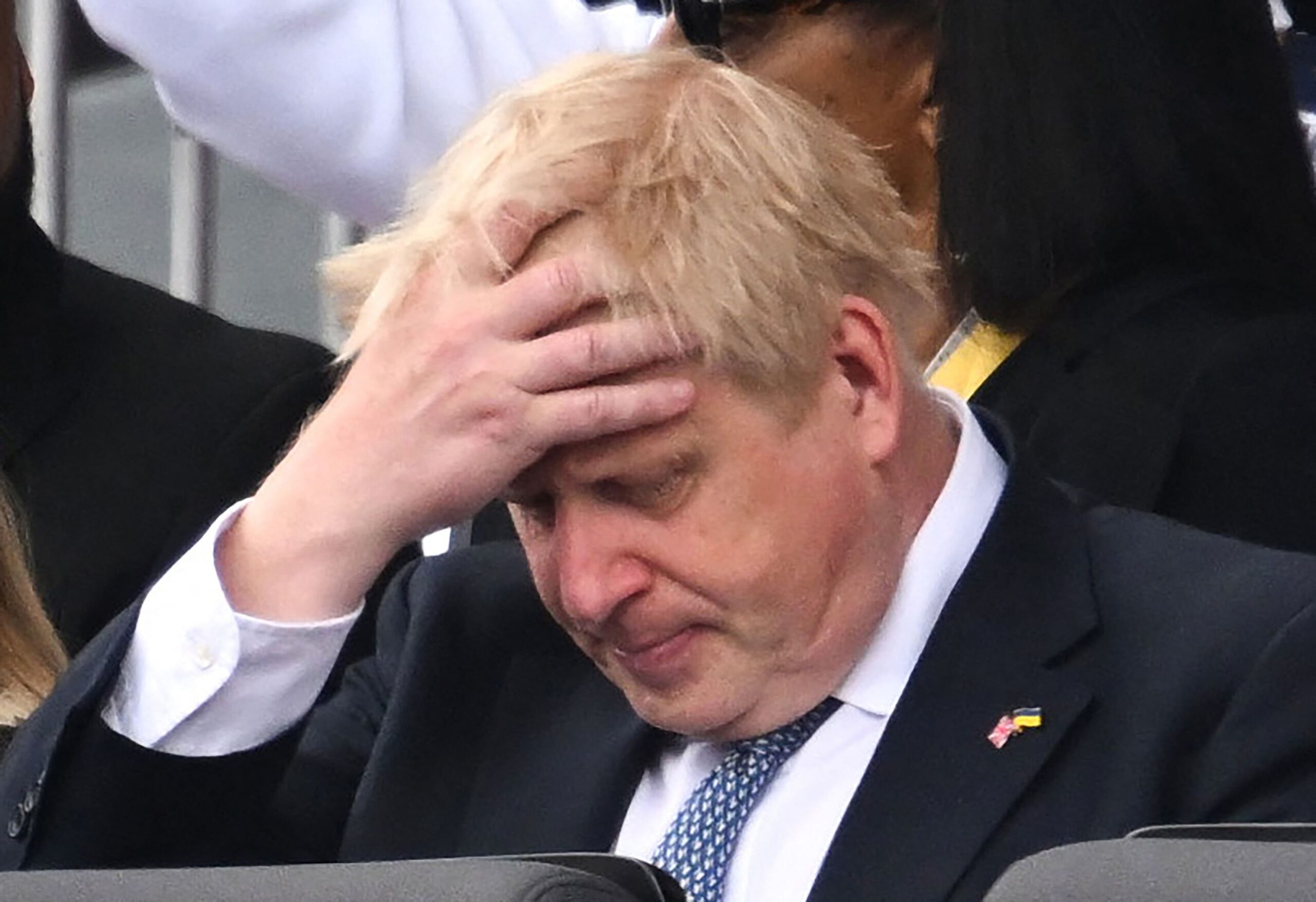The Prime Minister of the United Kingdom, Boris Johnson, faces this Monday an internal motion of censure on his leadership of the Conservative Party that may force him to leave Downing Street and cede the head of government to the winner of a primaries of his formation.
If the motion fails, however, Johnson will remain in office and be immune for a year from any further Tory revolt against him.
The party scandal during the pandemic (Partygate) has eroded Johnson’s public image and has plummeted conservatives in the polls, who are also suffering from the cost-of-living crisis.
“Tory” MPs from all factions of the party, from the hard “Brexitera” wing to the more moderate, have expressed growing discontent with their own prime minister in recent weeks.
Today it has been confirmed that the threshold of 54 deputies (15% of the parliamentary group) who have requested in writing a vote on Johnson’s leadership has been exceeded, so, according to party rules, it has been called from 17:00 GMT.
The 359 conservative deputies will vote if they want Johnson to continue leading the party and the government. A simple majority of 180 ballot papers, or 50% of the votes, will be enough to decide the prime minister’s future.
The vote is anonymous, so ministers and senior executives can oppose Johnson without their names coming out, making it difficult to predict the level of support the prime minister may command.
Around 160 of the “Tory” parliamentarians hold a government position that they would put at risk in the face of a change of leader, something that experts consider a possible advantage for Johnson.
If the head of government wins the vote, a new motion against him could not be called for twelve months.
The last time an internal censure motion was held, in December 2018, the then Prime Minister, Theresa May, survived the vote, although she resigned months later under pressure from her own co-religionists amid the turbulent process to negotiate an agreement. of Brexit.
If the votes against Johnson add up to 180 or more, the process will begin to hold a primary in which the new leader of the Conservative Party will be chosen. Although there is no written rule in this regard, the winner usually assumes the head of government without an election being called.
The prime minister would likely remain in office until Queen Elizabeth II appoints Downing Street’s next tenant, although he could also decide to resign immediately. In that case, the cabinet would appoint an interim chief, a responsibility that would presumably fall to Deputy Prime Minister Dominic Raab. In 2019, Theresa May continued in office after resigning from her until there was a successor, the same as David Cameron did in 2016.
Conservative primaries usually drag on for about two months. In a first phase, candidates who wish to do so can apply to succeed the prime minister.
Conservative MPs then vote in several rounds. In the first two votes, those who do not exceed a certain threshold of ballots are eliminated. In the following, the candidate with the fewest votes is left out. Only two candidates advance to the last phase of the primaries, in which the party’s affiliates choose the new leader.
Chancellor of the Exchequer Rishi Sunak has for months been leading the charge as a possible successor to Johnson. However, his options appear to have narrowed dramatically after he was embroiled in a scandal in April surrounding his wife, a wealthy heiress to a business empire in India who used legal tricks to avoid paying millions in UK tax.
The Foreign Minister, Liz Truss, has also positioned herself to opt for the leadership and could count on the support of the hard wing of the formation, although today she already announced that she supports Johnson “100%” in the motion.
In recent weeks, the moderate Jeremy Hunt, who already lost a primary against Johnson in 2019, has reappeared in the speculation about possible candidates.
Conforms to The Trust Project criteria
















